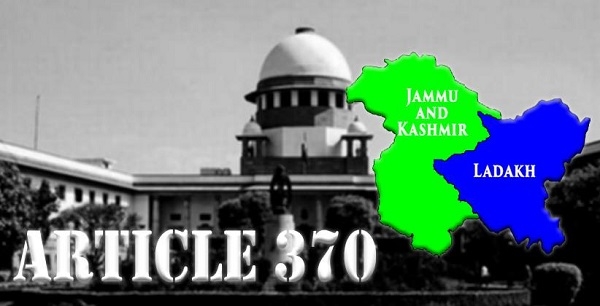SC ‘No’ to refer Article 370 related pleas to larger bench
Total Views |
New Delhi, March 02: The Supreme Court Monday refused to refer the petitions challenging abrogation of Article 370 to a larger bench. The five-Judge bench headed by Justice N V Ramana will hear the petitions. The Central Government has abrogated Article 370 and 35 A granting special status to the State of Jammu and Kashmir. With that, the government also bifurcated the state creating two separate union territories of Ladakh and Jammu and Kashmir.

Negating the requirement of a larger bench to hear these petitions the Supreme Court stated that there was no ‘direct conflict’ of opinion between the two judgments –Prem Nath Kaul vs Jammu & Kashmir in 1959 and Sampat Prakash vs Jammu and Kashmir in 1970 about the nature and extent of Article 370.
The People’ Union for Civil Liberties (PUCL) lawyer Sanjay Parikh during the January 23 hearing quoted from the statements of the Constituent Assembly members including Sardar Patel to highlight the intention of those who framed the Constitution on the continuity of Article 370. Senior Advocate Zafar Shah appeared on behalf of the Jammu and Kashmir Bar Association. He said that the Indian and J & K Constitution were parallel to each other.
Both these lawyers wanted the petitions challenging the Article 370 that guaranteed special status to Jammu and Kashmir to be referred to a larger bench comprising of seven judges as the earlier judgments delivered by five-judge benches were in conflict.
Attorney General K K Venugopal appearing on behalf of the Central Government told to bench that “the abrogation of Article 370 has now become a ‘fait accompli’ and there is no option but to accept the change”. The judgments referred to by the two lawyers were not related to each other and they dealt with different issues, Venugopal maintained.
The Centre on August 5, 2019, had abrogated Article 370 through a resolution in the Parliament and bifurcated Jammu and Kashmir into two union territories of J&K and Ladakh. At least 23 petitions were filed in the top court challenging the government’s decision of scrapping away the special status of Jammu and Kashmir.

